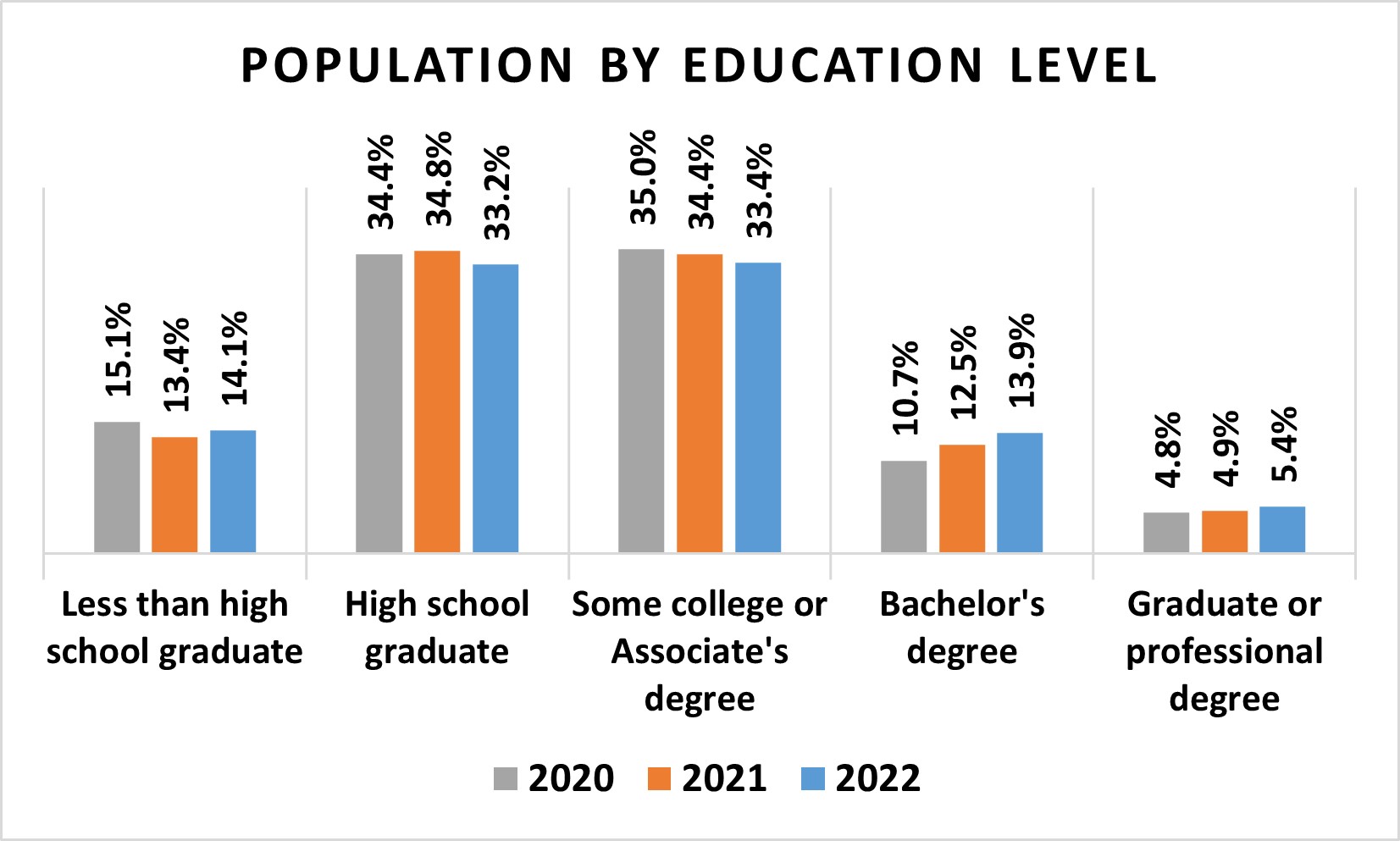The City of Racine Public Health Department has compiled data regarding current health status and other factors that impact the well being of Racine residents and visitors:
Mental Health and Substance Abuse
Well-educated citizens are Racine’s most important asset. Students from high-quality schools become skilled, productive members of the workforce and are vital to the City’s economy as employees, business owners, and consumers. Pinpointing strengths and weaknesses in the curriculum is key to maximizing student potential. In order to maintain and grow the City’s economy, students must be encouraged to graduate and pursue post-high school education. This section contains information on Racine Unified School District’s graduation rates and standardized testing results.

Source:
Wisconsin Information System for Education Data Dashboard (WISEDash)
More than 80% of Racine Unified students districts graduated high school in 4 years. Racine Unified School District (RUSD) increased between 2018 to 2023 from 76% to 84% completion, respectively.

Source:
Wisconsin Information System for Education Data Dashboard (WISEDash)
During the 2022-23 academic year, Racine Unified School District (RUSD) was consistently placed below statewide levels in 3rd through 10th grade standardized subject testing, although higher than Milwaukee Public Schools.

Source:
U.S. Census
City of Racine residents have a large educational distribution. The highest groups consist of high school graduates and those with some college and associates degree, with the lowest of graduate and professional degrees. Over the years, both bachelors and graduate degree rates have gone up.




